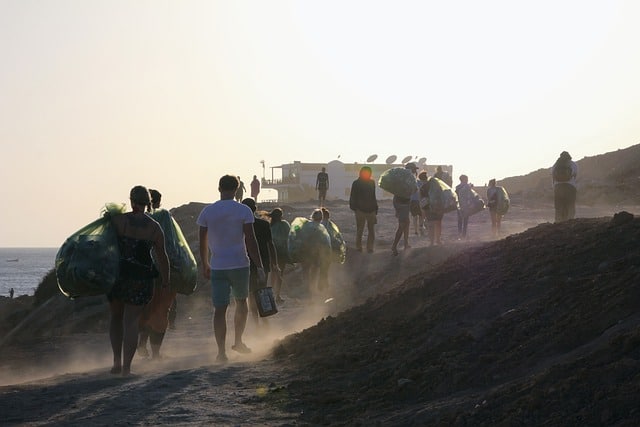
A social organization can be a group of individuals who work together with a common goal.
The notion of organization comes from the French word organisation . The concept can refer to the order or arrangement of something and to the association of individuals established with a certain objective.
Social , meanwhile, is an adjective that refers to that which is linked to society. Coming from the Latin sociĕtas , society is called a group of human beings who live in the same territory under common rules.
The idea of social organization , in this framework, can refer to different issues. On the one hand, a social organization is an entity or group that carries out a certain non-profit activity ; On the other hand, we can speak of social organization to name the network of links that are established within the framework of a community .
Social organization as an association
A social organization can be born when several individuals come together with a certain objective without the desire to obtain economic gain. The purpose of this type of corporation may be cultural, political, social or of another kind.
Although, in a certain way, it can be said that a company is a social organization, generally if the project aims to produce economic benefits it does not fall into this classification.
In this way, a social organization is mentioned as the group of men and women who, by sharing values and visions, work together with a mission, shaping or developing that common approach. A social organization, for example, can be oriented towards the care of ecology, the assistance of needy sectors or the rescue of animals in danger, to mention a few possibilities.

The set of interactions that occur within a community establishes social organization.
The need for resources
It is important to note that, although the social organization does not have a materialistic intention, it needs resources for its functioning. Human resources can be provided by the members themselves on an ad honorem basis, but various elements are always required to contribute to achieving the stated goal .
Returning to the examples mentioned above, an ecological social organization must have bags to collect waste or containers so that citizens can deposit garbage. Helping the poor, in turn, may require having food and personal hygiene products available. If we focus on wildlife rescue, there are essential objects such as ropes, cages, etc.
Social organization as a set of relationships
In another sense, social organization is the result of the interactions entered into by those who make up a society. From these relationships hierarchies and structures emerge that shape the physiognomy of the community.
It can be argued that social organization involves the formalization of links between citizens . Order is essential for society to function in accordance with what people expect or desire.
There are theorists who affirm that social organization begins with the family . These primary groups are the nucleus , although many more groupings with different degrees of complexity are later established. On a larger scale, the State represents the highest point of social organization: the human being even gives up the monopoly of force in the state power to guarantee peace.
